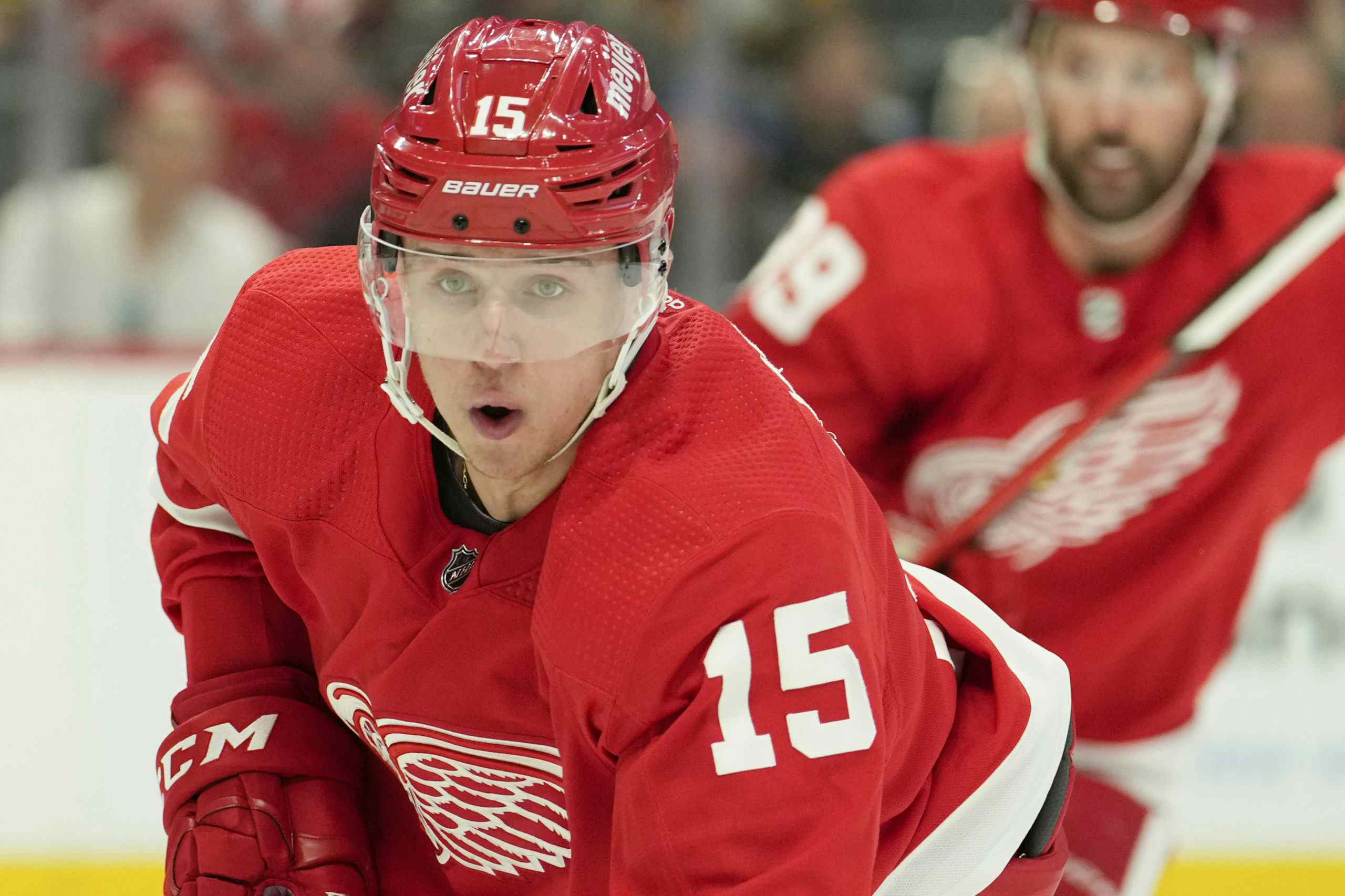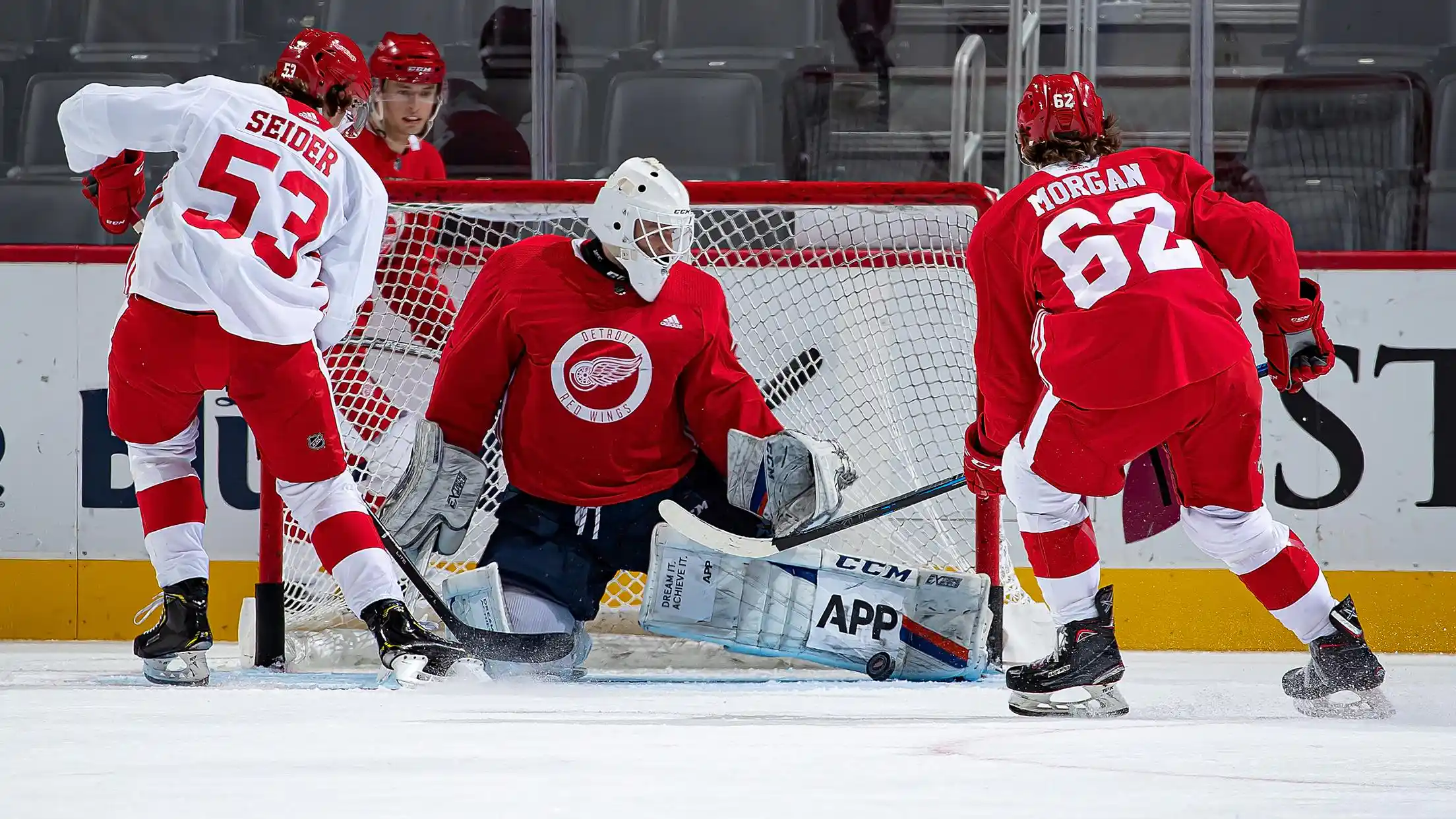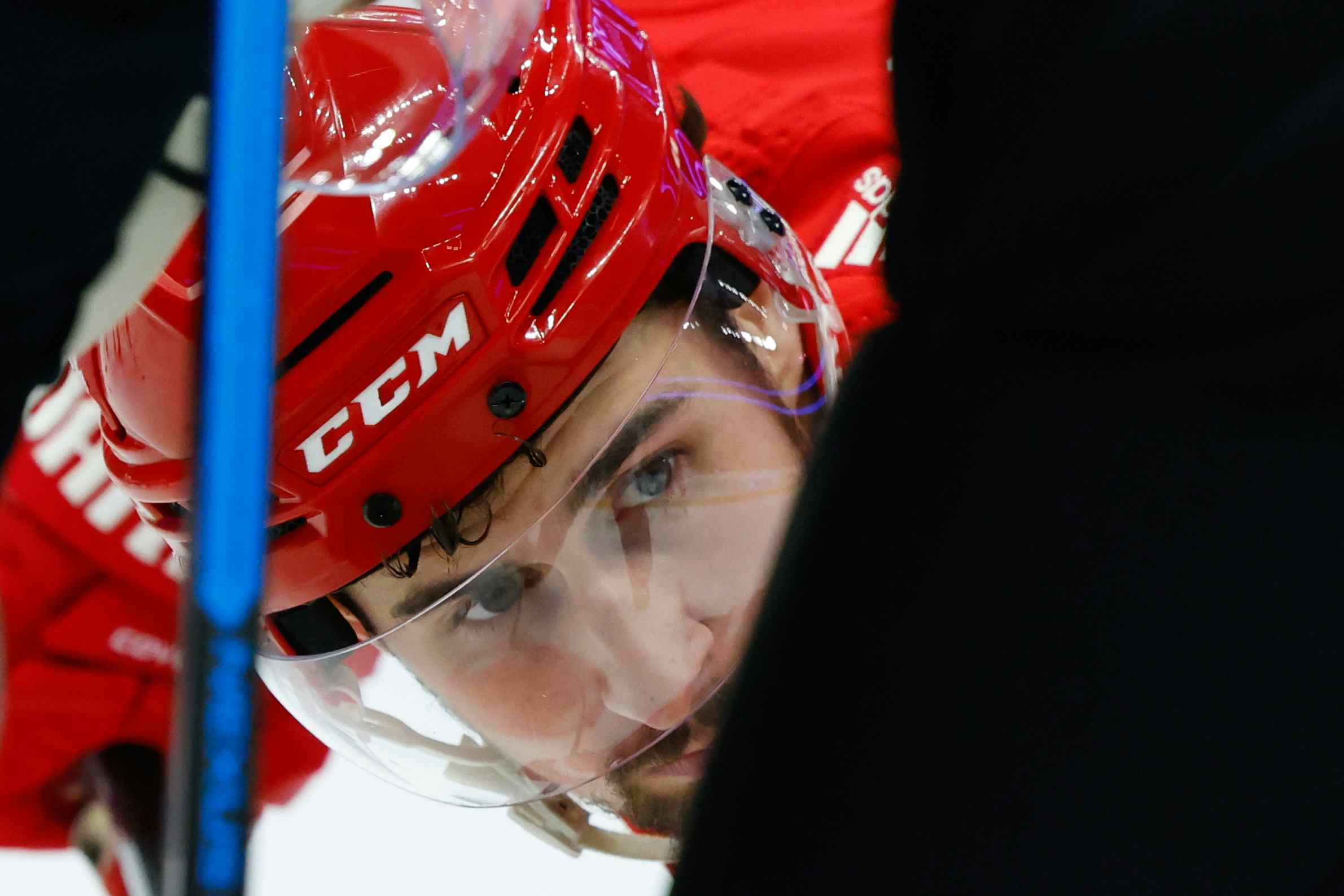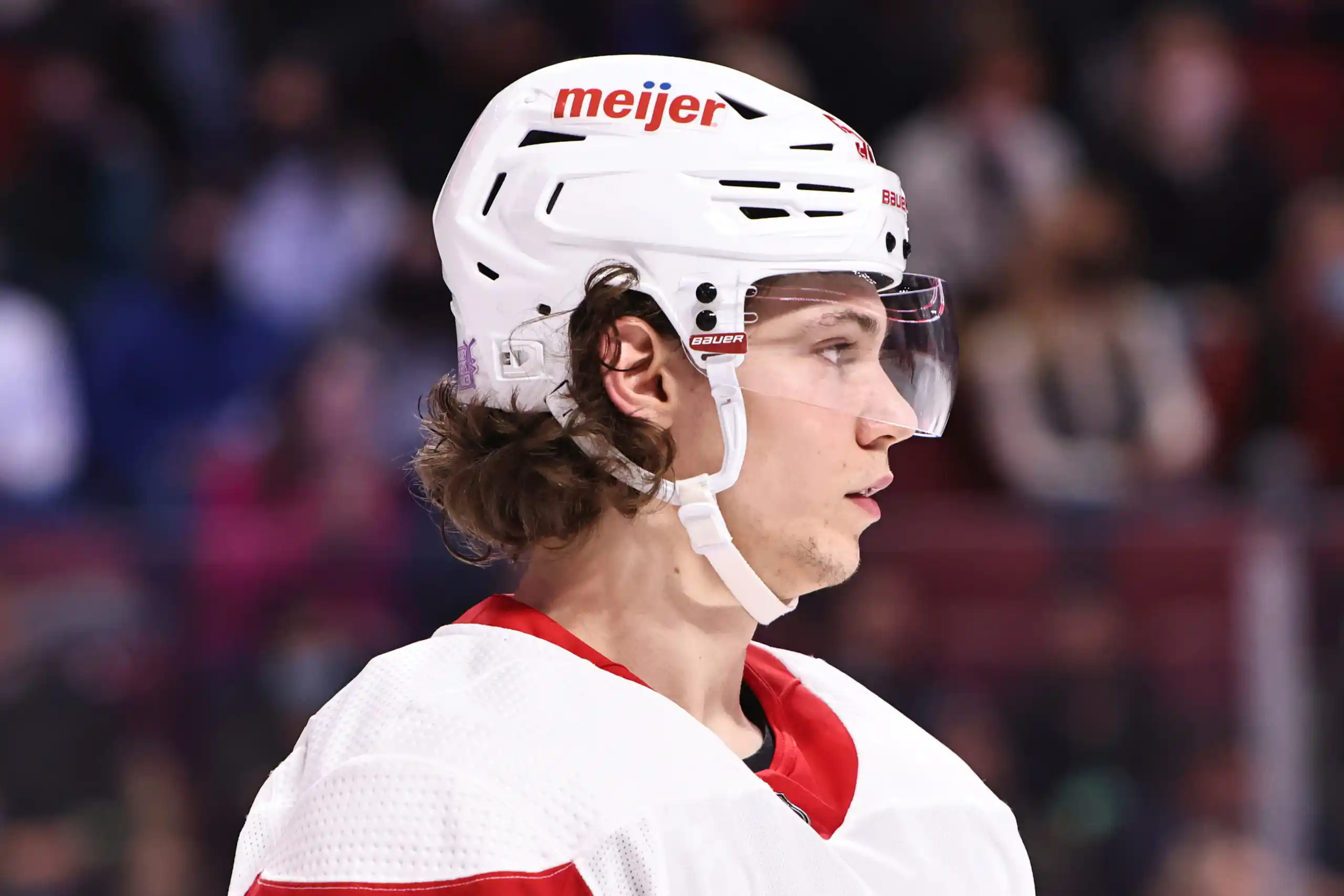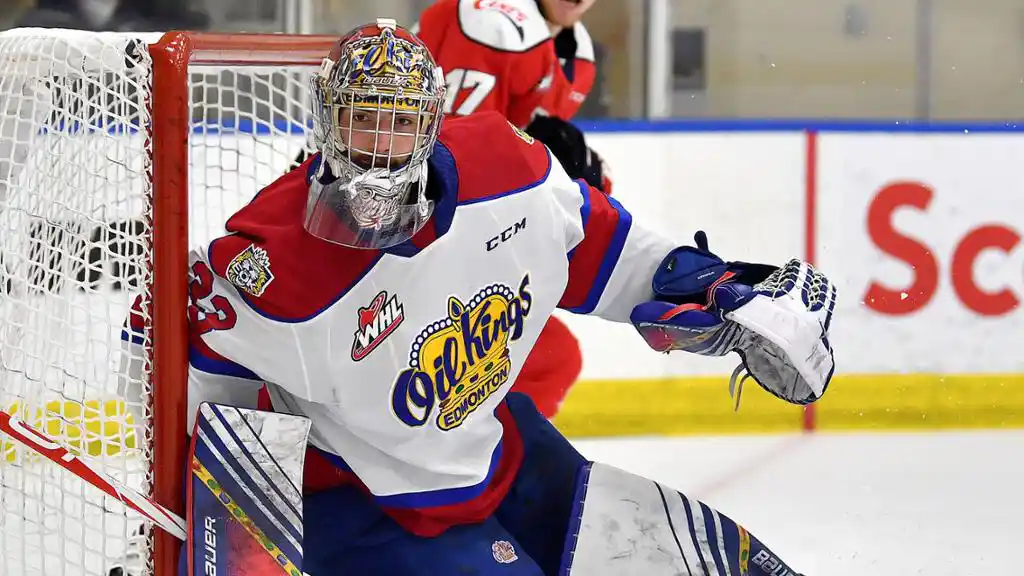Why Ken Holland Shouldn’t Sell Low On Riley Sheahan
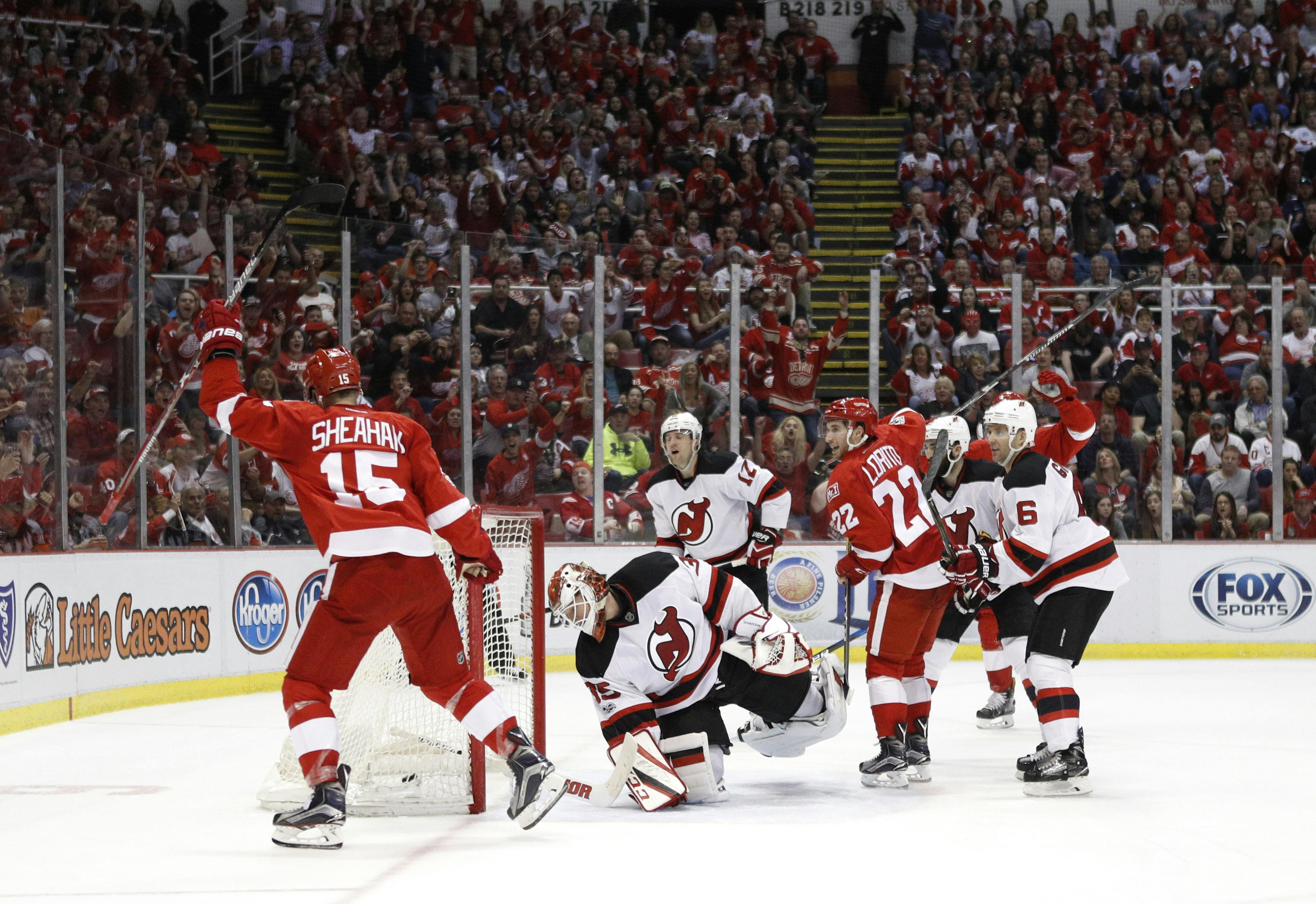
One of the easiest ways to evaluate how well a general manager does his job is by looking at how he handles the market with trading and signing players. By this I mean, does he buy high and sell low, or does he sell high and buy low. Whether it’s picking up a player having an off year to a cheap deal, or trading away a player after a career year, selling high and buying low is the most effective way to manage your assets, and have an excellent team.

I hate to inform you, but Ken Holland is rarely good at that. Whether it’s signing Justin Abdelkader for seven years at $4.25M after one 23 goal season (and shooting 14.9%), trading Tomas Jurco away for a third round pick after rarely playing him, or losing Teemu Pulkkinen to waivers after also rarely playing him, Holland manages his assets very poorly and it’s part of the reason why the team finished it’s worst season in 25 years despite having the sixth highest cap hit.
Riley Sheahan is another candidate to fall subject to Holland’s ability to sell low. I’m pretty sure everyone knows this by now, but Sheahan is coming off a season that saw him score only two goals, both coming in the final game of the season. It was a career worst by a wide margin, as even in his rookie season he managed to get 9 goals in 42 games. He even has a record for being the first player to take 100 shots in a season and not score on any of them. It was a pretty bad season.
Which means it wouldn’t be a surprise to see Holland trade him. While Holland’s loyalty to his players may be what keeps him from doing it, he could also see Sheahan as a player who may need to be shipped to make room for the younger players. While personally I’d just say don’t sign Drew Miller, Holland may opt to go for trading Sheahan. He’s already popped up in trade rumours at the deadline, so it wouldn’t be a surprise.
However, that would be a terrible mistake. Maybe not franchise altering, but stupid nonetheless.
Embed from Getty ImagesFirst off, it would be dumb because you’re selling extremely low on him. Steve Ott got a sixth round pick for the Wings after scoring three goals, so how much more is Sheahan getting you? A fifth, maybe a fourth? That’s a bit of a drop off from what he would have got you last year, and even more from two years ago, after his 36 point season. Holland will get robbed blind in any trade that he includes Sheahan, unless the team he’s trading with is dumber than he is, and gives him a significantly better and/or younger player than Sheahan.
The main reason he’ll get robbed is because, if luck has worked the way it has in the past, Sheahan will have a much better season than he did this year. If you compare his 1.8% shooting percentage to his 9% career shooting percentage, it’s a massive gap. If he were to have a rebound year next season that sees a similar gap in shooting percentage, but in the other direction, he’ll shoot about 16.2%. If he takes shots at a per game rate similar to the rest of his career, and plays a healthy season, he’ll average 1.49 shots per game, which will give him about 122 shots in an 82 game season. If he shoots, 16.2% on those 122 shots, he’ll score 19-20 goals next year, which would be five or six higher than his current career high.
Sheahan also dealt with some abysmal luck on the ice with regards to how much his teammates scored with him on the ice. Sheahan had an on-ice shooting percentage of 5.43%, compared to the usual 8% or 9% that the average NHLer shoots at. And even if his on-ice shooting percentage improves, that doesn’t necessarily mean that his assists will improve either. However, it’s safe to say that he’ll see a slight improvement in that regard. He had 11 last year, so maybe it improves to 15, maybe even 20.
So, combining the two different numbers that I calculated (guessed), this means that we might potentially see a 35-40 point season from Sheahan, assuming that the law of averages does it’s thing. This could be great news for the Wings, as it means that Sheahan could have a career year next year, and help the Wings in improving the team by either contributing more offense and moving the team up the standings, or having a good enough season that could fetch him enough interest to provide Detroit a solid return for him if they trade him at the deadline. Nothing crazy, as 0.5 point per game players don’t fetch a ton at the deadline, but he’d get more than what he would right now. And who knows, Paul Gaustad was once traded for a first round pick, and David Legwand was once traded for Calle Jarnkrok, Patrick Eaves, and a second round pi… oh, right.
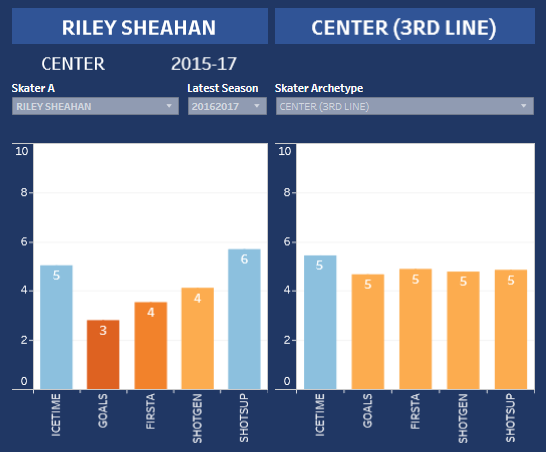
Via Own the Puck
But, there is also some bad news. This could also mean that if Holland were to trade Sheahan right now, he would get almost nothing for him currently, and then would be watching another team have the luxury of Sheahan’s career year on their team, and either contribute to THEIR playoff run, or give THEM assets at the deadline. It would be another example of horrible mismanagement from Holland.
It can also work the other way too. While Holland could get shafted by selling low, he might also get put in a position where he’s buying high. After all, it’s a contract year for Sheahan, and aforementioned teammate Abdelkader got paid quite handsomely for having a 20 goal, 40 point season. Sheahan probably wouldn’t get as much for as long, but it would still be enough to be a bad contract, and put the team in even more of a cap hell.
So, my message to Holland is this: manage Sheahan wisely. Don’t trade him or leave him unprotected in the expansion draft this offseason. Give him a chance to prove that he’s better than what he was last season while you have him at reasonable $2.075 million. And if he does play better, manage him wisely then too. Either trade him when his value is high, or get him on a contract that is reasonable.
Am I making a huge deal over Riley Sheahan? Probably, but with reason. While mismanaging Sheahan wouldn’t cost the Red Wings that much, they are in the unfortunate position where they can’t really afford to make minor mistakes anymore. They have no cap room, very few assets with value, and very few players that have promising futures. It would be a minor mistake, but the Wings have made so many lately that even the smallest of mistakes could end up being the nail in the coffin. It’s death by a thousand cuts, and the Wings already have 999 of them.
Recent articles from Scott Maxwell

